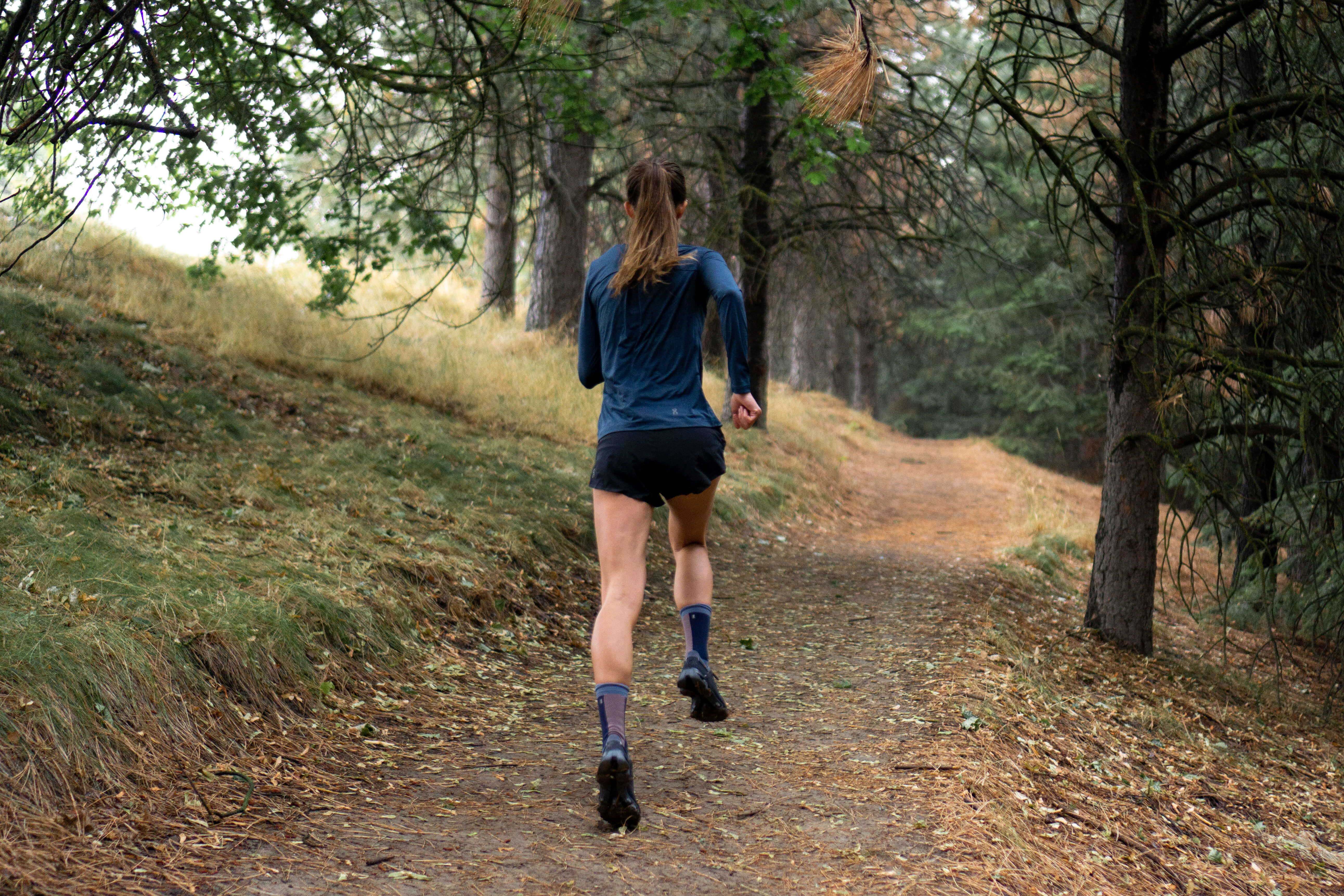
(2-Minute Read)
I never make New Year’s resolutions. Though when 2021 started, I knew I needed to make one change, I vowed to not log onto Strava at all during the year. Like other physical activity trackers, Strava connects humans from around the world through their movement journeys. Strava provides all the details of the activity from the mileage, elevation gain, and even digital maps to allow others to chase the top spot on leaderboards. In the age of GPS (Global Positioning System) watches, one can synchronize their watches to their phone to upload all their fitness data from their watch directly to Strava. In seconds, one can know all the objective details from their run.
 In an effort to learn more about the training philosophies of some of the best trail and mountain runners in the world, I thought I would investigate just how much elevation gain said athletes run during an average week. Even though my intention was to use Strava as a tool, the more time I spent on Strava, the more toxic the application became for my wellbeing. I started comparing myself to my competitors. I felt a desire to look at Strava daily even though seeing everyone else’s activities further decreased my confidence in myself. I realized I did not run as much elevation, mileage, or even run on the trails as much during the week as my competitors, which made me question my coach and training philosophy.
In an effort to learn more about the training philosophies of some of the best trail and mountain runners in the world, I thought I would investigate just how much elevation gain said athletes run during an average week. Even though my intention was to use Strava as a tool, the more time I spent on Strava, the more toxic the application became for my wellbeing. I started comparing myself to my competitors. I felt a desire to look at Strava daily even though seeing everyone else’s activities further decreased my confidence in myself. I realized I did not run as much elevation, mileage, or even run on the trails as much during the week as my competitors, which made me question my coach and training philosophy.
The irony was that in 2020 I was the fittest I have ever been. I was spending more time on the trails than ever before and yet my confidence was nonexistent. Through reflection, I believe my newfound obsession with checking and comparing myself on Strava is what caused my confidence to absolutely plummet. I had no reason in the past to question or compare myself but now I was more focused on everyone else’s journey instead of being present for mine.

Since 2021 started, I have only been on Strava once. I believe my fixation on Strava reminded me that I am hardwired for objective measures. I feel a constant internal battle raging because I do not love running because of the objective experience. However, I am constantly measuring or comparing myself based on the objective. For instance, even though I am no longer on Strava, I doubt my abilities daily. I have a race on August 15th, the USATF (United States of America Track & Field) Mountain Running Championships. The top four athletes qualify for the World Trail and Mountain Running Championships in Thailand in November. Even though I have seven weeks before the race and have no reason to believe I cannot qualify for my second World Championships, I am losing the mental race. Why am I already envisioning failure rather than success?

From a very young age, humans are taught that nonmoral values like money, success, power, and fame are the driving values for societal behavior. I could feel the extrinsic pressures to perform well athletically and earn better grades. My parents never placed pressure on me to perform, but from the messages in the media, athletics, and school, I knew the outcome mattered more than the journey. If I wanted to be successful and contribute to society, then I had to earn a 4.0 GPA (grade point average) and if I wanted to run in college, I needed to run fast.
Objective measures do not tell the full story and yet I have placed my worth in said measures. Strava users have a common saying, “…if it isn’t on Strava, it didn’t happen” (George, 2020). I have been consumed by ensuring that Strava knows how far I ran or how fast. For instance, if I accidentally did not start my watch again after a stop mid-run, I have added more time on a run just for my watch and ultimately Strava to see I ran 12 miles instead of 10 miles. I have sacrificed my lived experience, being present in the moment, to allow an objective fitness tracker to determine my experience.
Strava removes the emotional meaning of my effort and I allow my experience to be defined by objective measures. Tracking my elevation gain and mileage run through Strava will never fully capture my adventure in the mountains. I love running because the movement makes me feel free, like a hawk soaring around the mountains, which no objective measure on Strava can explain. From my experiences, when I allow myself the freedom to be present, free from comparison and external measures of success, my experiences are significantly more meaningful and I truly enjoy running.
References
George, R. (2020, January 14). Kudos, leaderboards, QOMs: How fitness app Strava became a religion. Retrieved from The Guardian: https://www.theguardian.com/news/2020/jan/14/kudos-leaderboards-qoms-how-fitness-app-strava-became-a-religion

